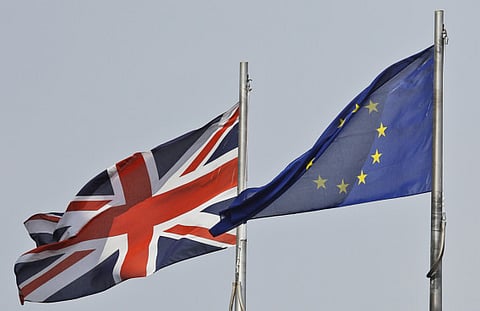Job losses and messy Brexit can derail UK economy's post-pandemic revival
But upturn is fed by generous government funding, which will soon wind down

London: Britain recorded strong growth in July as coronavirus restrictions eased, but mounting job losses and the risk of a messy Brexit are threatening a turbulent end to the year.
Gross domestic product rose 6.6 per cent from June, when it gained a record 8.7 per cent, with activity being boosted by the reopening of restaurants and bars in early July. However, the country has clawed back little more than half of the output lost during the lockdown, and recovering the rest may prove difficult.
While Chancellor of the Exchequer Rishi Sunak said the rebound is "welcome", the UK is facing a triple hit that could force policymakers to increase monetary and fiscal support for the economy. Cases of the virus are rising, the government's plan to end its furlough programme could cause a jump in unemployment, and a disruptive split from the European Union hangs over the outlook.
All sectors grew strongly in July, led by construction, the Office for National Statistics said Friday. But output is still 11.7 per cent lower than it was in February, and analysts warn a return to pre-pandemic levels may be a long way off. Risks include mass job losses as government wage support is withdrawn; renewed curbs to tackle a recent spike in COVID-19 infections; and the end of the Brexit transition period.
Firms will see the imposition of tariffs, quotas and customs checks unless Britain and the EU strike a trade deal before the end of the year. The GDP figures come in a week that saw the prospect of an agreement recede dramatically, after Prime Minister Boris Johnson threatened to break international law and re-write the divorce deal he struck last year. (That has sent the pound lower in recent days.)
Need for fresh ammunition
The threats are piling pressure on officials in the UK to do more to shore up the economy. The Bank of England, which has expanded its asset-buying programme and cut interest rates to near zero, has declared it has plenty of room to add monetary stimulus, even including negative rates if needed.
Sunak meanwhile is facing calls to extend wage support for workers in the hardest-hit sectors. The fear is that well over a million people could lose their jobs if the programme ends in October, as the government currently proposes.
"The rise in COVID-19 cases and return of public health restrictions means we are coming toward the end of the easy economic wins from restarting activity," said James Smith, research director at the Resolution Foundation think tank. "Far tougher times lie ahead this autumn."
The impact could derail the economy's revival from its 22 per cent contraction in the first-half - the deepest slump among major advanced economies.
Recent activity reflects pent up demand and government stimulus such as a temporary tax cut on home-buying and subsidies for eating out during August. Such spending has pushed government debt above 2 trillion pounds ($2.6 trillion) for the first time.
That's affordable for now because of ultra-low borrowing costs, but Sunak has warned of "difficult decisions" ahead - a hint that tax rises will be introduced once the economic crisis has abated. The dilemma of how to wind down aid, yet still support growth and contain the virus, is also playing out across Europe.
Most governments oppose reinstating widespread lockdowns to control the pandemic again after severe restrictions earlier in the year pushed the continent into an unprecedented recession.
Education grew strongly in July as some children returned to school; pubs, campsites and hairdressers all saw "notable improvements", the ONS said. Manufacturing rose across the board, with distillers and carmakers posting particularly strong gains, and housebuilding continued to recover.
Sign up for the Daily Briefing
Get the latest news and updates straight to your inbox







